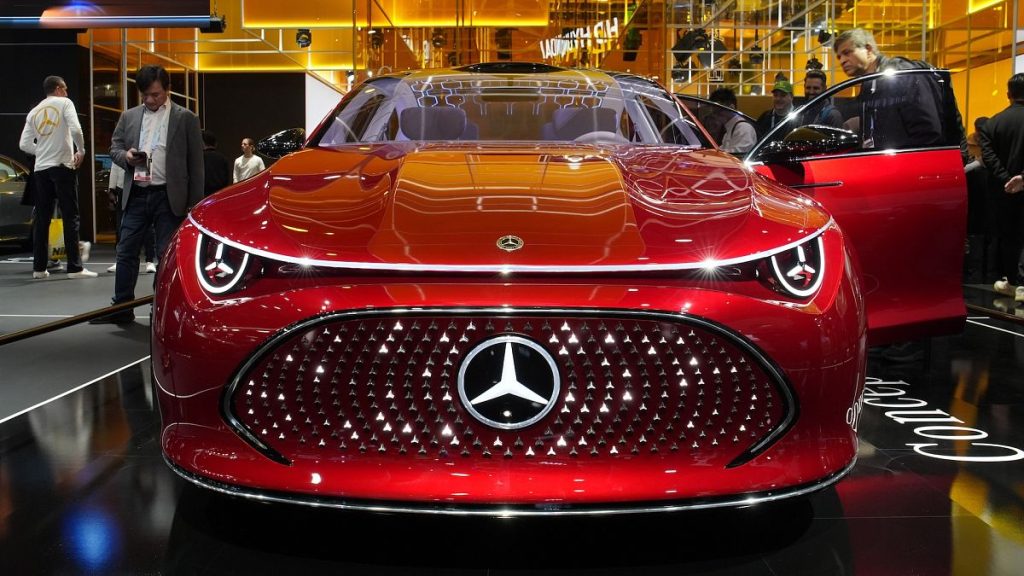The European automotive industry, particularly German manufacturers, is facing a confluence of challenges that have prompted Goldman Sachs to downgrade prominent players like Porsche and Mercedes-Benz. These challenges, encompassing rising costs, declining profitability, especially in the crucial Chinese market, and the complex transition to electric vehicles, paint a bleak picture for the sector in the near term. The combined pressures of escalating labor costs, potential tariff increases, and increasingly stringent environmental regulations are creating a perfect storm, leading Goldman Sachs to revise its earnings forecasts downwards for the industry. This downturn reflects a broader trend of declining investor confidence in European automakers, with the sector experiencing a significant decline in value throughout 2024.
At the heart of the profitability dilemma lies the transition to battery electric vehicles (BEVs). While regulatory pressures are driving increased BEV adoption across Europe, the higher production costs associated with these vehicles are eroding profit margins. This dynamic creates a challenging balancing act for manufacturers, who must invest heavily in BEV technology while simultaneously managing shrinking margins on traditional combustion engine vehicles. The anticipated growth in BEV market share, driven by CO2 emission reduction targets, is unlikely to fully offset the cost burden, putting further pressure on overall profitability. This issue is compounded by the dwindling returns from Chinese joint ventures, a crucial revenue stream for many European automakers.
The Chinese market, once a significant source of growth, has become a source of considerable concern. Plummeting profits from Chinese joint ventures, reflecting a broader downturn for Western automakers in the region, are adding to the industry’s woes. The success of domestic Chinese brands and shifting consumer preferences are contributing to this decline, raising fears that European manufacturers will follow the path of American counterparts like Ford and General Motors, who have already seen their Chinese operations slip into unprofitability. This declining performance in China further underscores the vulnerability of European automakers to external market forces and highlights the urgent need for strategic adjustments.
The specific downgrades of Porsche and Mercedes-Benz reflect the gravity of the situation. Porsche’s downgrade to a “Sell” rating stems from limited growth prospects, ongoing financial risks associated with high leverage and Volkswagen’s restructuring efforts, and the aforementioned challenges in the Chinese market. The softening demand for BEVs in Western markets further complicates Porsche’s outlook, dampening hopes for a quick recovery. Mercedes-Benz, downgraded to “Neutral,” faces similar headwinds, with added uncertainty surrounding the performance of its luxury vehicle segment. Weakening demand in key markets, a mixed reception for AMG models, and an aging S-Class lineup are all contributing to the company’s declining profitability.
Mercedes-Benz’s significant drop in earnings before interest and taxes (EBIT) highlights the depth of the challenge. The anticipated continued decline in 2025, albeit followed by a projected modest recovery in 2026, points to a prolonged period of adjustment. Investor confidence in Mercedes-Benz’s near- and mid-term margin targets is likely to wane, demanding a reassessment of the company’s strategy. Despite these challenges, potential opportunities exist, particularly in the realm of autonomous driving technology and its partnership with Nvidia. However, these potential bright spots are overshadowed by the more immediate concerns surrounding BEV profitability and the weakening contribution from China. The company needs to articulate a clearer shareholder return strategy and address concerns regarding the Daimler Truck stake to regain investor confidence.
Beyond the specific challenges faced by individual companies, the broader industry is grappling with trade and tariff uncertainties. The recent imposition of tariffs on Chinese-made BEVs by the European Union, coupled with the potential for escalating trade tensions with the United States, adds another layer of complexity. The global nature of the automotive industry makes it particularly vulnerable to such disruptions, as supply chains and market access are easily impacted by trade disputes. This uncertain trade environment necessitates careful navigation and potentially requires manufacturers to re-evaluate their global production and distribution strategies. Amidst this challenging landscape, Renault stands out as a potential bright spot, due to its focus on cost discipline and a robust pipeline of new products, positioning it to potentially outperform its German rivals. Nevertheless, the overarching question remains: how effectively can European automakers adapt to this rapidly evolving and increasingly challenging market environment? The long-term success of the European automotive industry hinges on its ability to navigate these challenges, innovate, and regain the confidence of investors.














